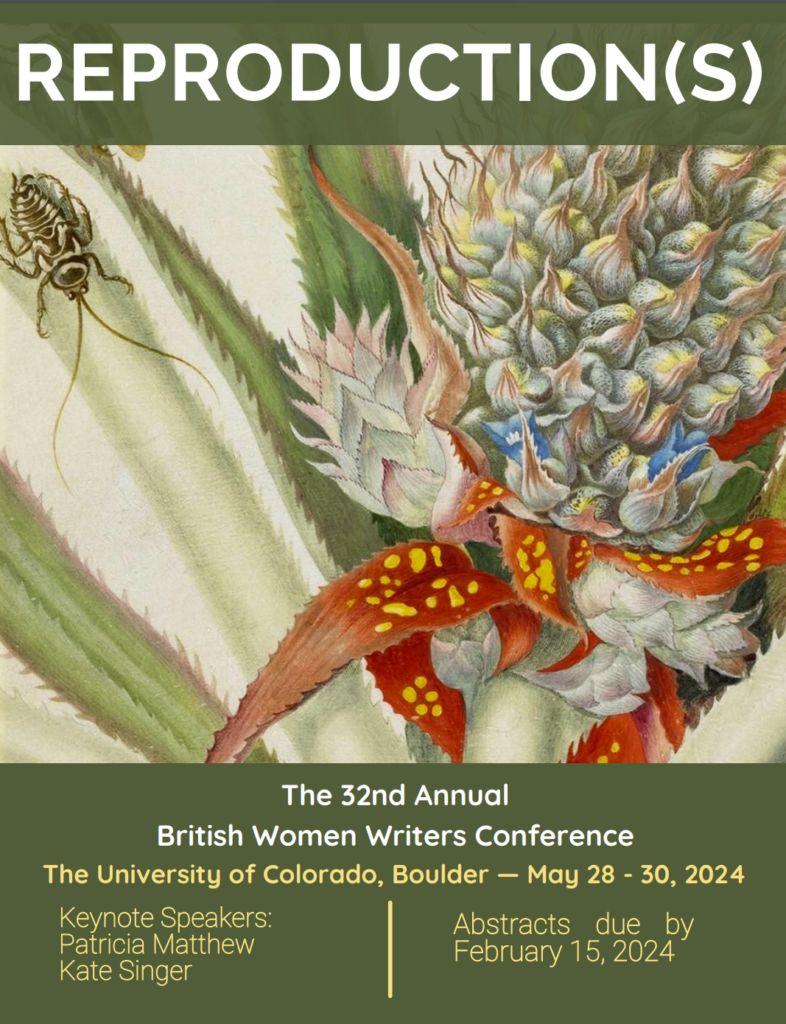
Reproductions
British Women Writers Conference
University of Colorado, Boulder
May 28th-30th, 2024
Abstracts due: February 15, 2024
The organizers of the 2024 BWWC invite papers and panel proposals related to the theme of ‘Reproduction(s)’ in global, transatlantic, and British women’s writing from the long eighteenth century to the present. Beyond the more obvious correlation between this theme and the centrality of reproductive rights to women’s lives, a vital resonance exists between this topic and the commitment of the British Women Writers Association to recovering “women/womxn from the margins to the center of literary history.” The act of recovery (and all forms of reproduction, for that matter) contains the potential for re-emergence and mutation—for moments of slippage and opportunities for change. Participants are encouraged to be especially aware of the potential for disruption embedded within the concept/practice/enactment of reproduction(s).
This year’s organizers have deliberately chosen the plural form of “reproduction” because the word is simultaneously a noun, a verb, and an adjective. Also, reproduction is both biological and technological, as seen in the reverberating effects the industrial revolution had on blurring the supposed boundaries between women’s labor, leisure, and traditional familial structures. The ways in which aesthetics and print culture reproduce these cultural tensions reveal the continual transformations and mutations of women’s roles in society.
Intimately tied to these issues are forms of familial reproduction, ranging from eighteenth-century laws regarding inheritance to the suffrage movement of the twentieth century. While many women were embracing new roles, their self-enacted freedoms often outpaced their legal rights. This topic is especially relevant when considering that women who suffered because of the transatlantic slave trade and colonialism had even fewer legal rights than white women of the middle and upper classes.
Of great interest are subversive methods of reproducing knowledge, for example, unsanctioned communication networks and the re-appropriation of cultural reproductions. It would be especially beneficial to have contributions that embrace alternative approaches to “reproducing” the traditional archive. In the spirit of reproduction(s), the organizers look forward to reading proposals that play with and challenge the limits of this theme.